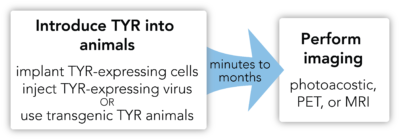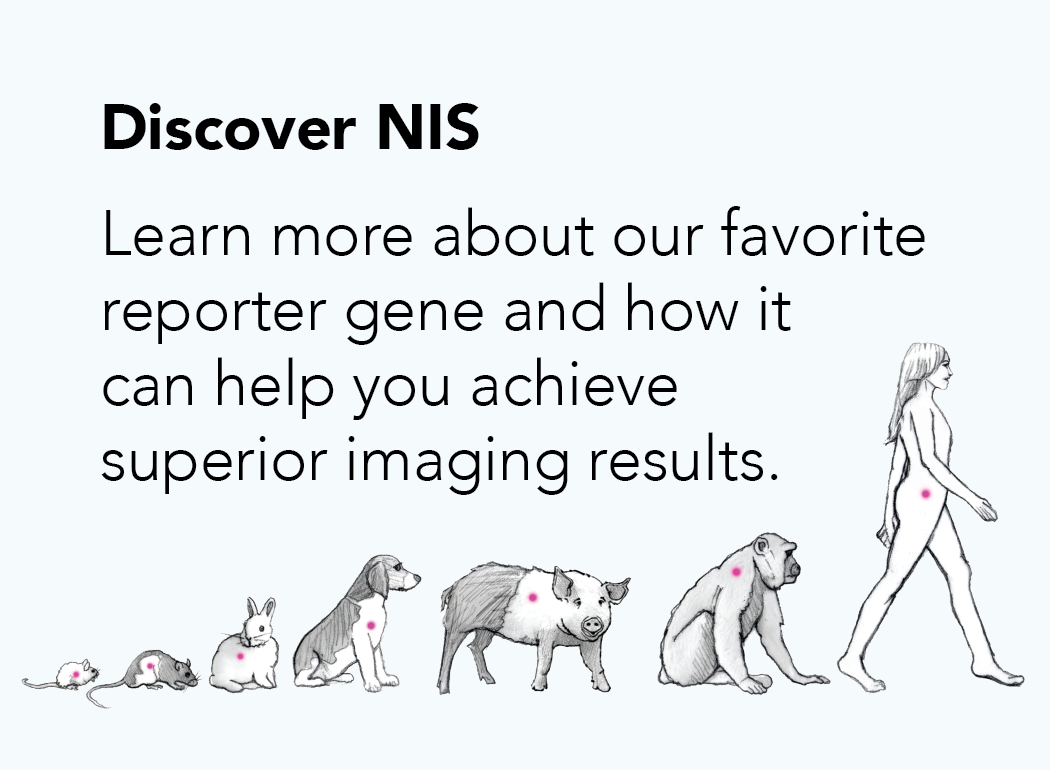Tyrosinase
For noninvasive photoacoustic imaging
Tyrosinase (TYR) is an enzyme that converts tyrosine to melanin; the brown pigment associated with skin, hair, and eye color. Since TYR alone is sufficient for melanin production from tyrosine precursors, melanin production can be induced in cells by expressing TYR. Once TYR expression is established, melanin production can be tracked using photoacoustic imaging.
Further reading: Jathoul et al. Nature Photonics. 2015. 22(9):239-46
-
Imaging TYR
How to use TYR for imaging
Reagents: No additional reagents are needed for imaging with tyrosinase.
Equipment: A photoacoustic imager can be used to detect the melanin produced by tyrosine oxidation. The acquired photoacoustic image is often combined with an ultrasound image to indicate the biodistribution of the pigmented cells.
Workflow:

-
Applications
When to use TYR
TYR can be used to noninvasively track cells or viruses for pre-clinical gene therapy, oncology, and oncolytic virotherapy studies. TYR is particularly amenable to photoacoustic imaging (PAI). PAI , offers excellent spatial resolution and relatively high-throughput imaging. However, PAI can only be conducted in soft tissues, as dense bone interferes with the light-absorption imaging. Additionally, although PAI offers high tissue penetration, resolution does decrease with increasing tissue depth.
TYR expression is only nonimmunogenic when species matched. Therefore, human TYR (hTYR) should be used in immunocompromised mice.
Can’t figure out which reporter is best for you? Check out our page on Choosing a Reporter for helpful considerations and comparisons.

